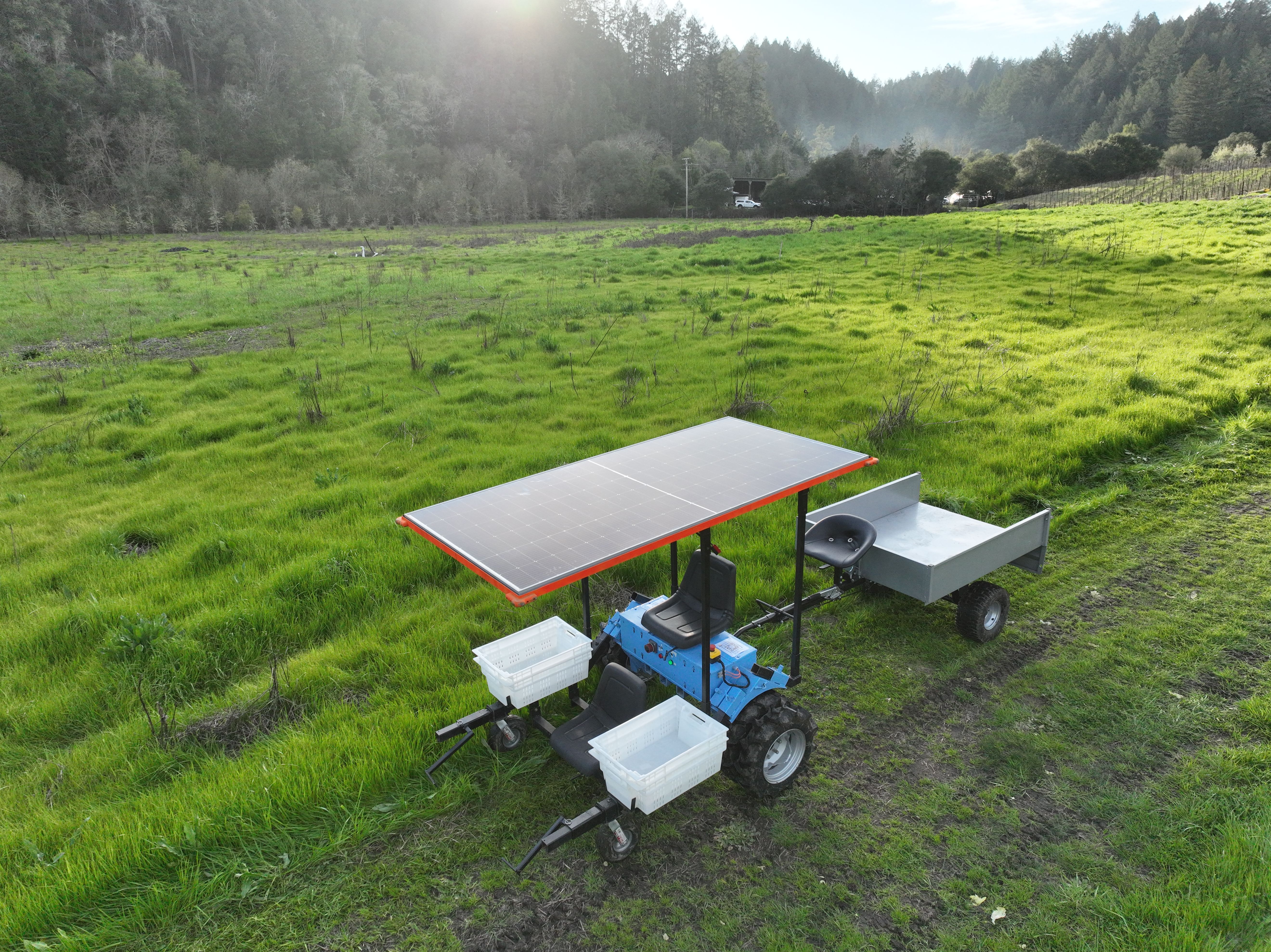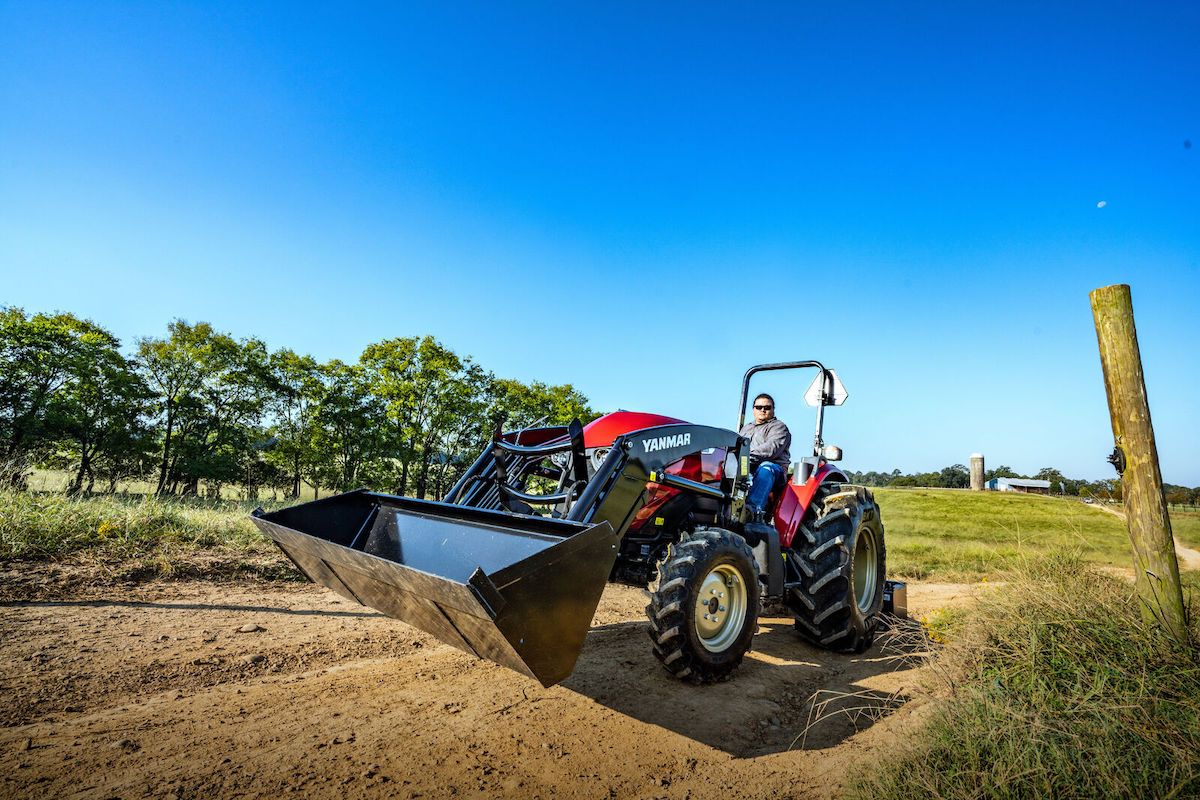Electric tractors are quickly becoming a cornerstone in the movement toward sustainable farming. With an increasing demand for eco-friendly farming technologies and renewable energy solutions, these advanced machines are redefining how farms operate. By utilizing clean energy, such as solar power, electric tractors help reduce carbon emissions, improve efficiency, and provide a greener alternative to traditional diesel-powered equipment. As the agricultural sector becomes more environmentally conscious, electric tractors offer an exciting glimpse into the future of farming.
At Renewables.com, we are proud to be at the forefront of this technological shift, offering cutting-edge electric farming equipment designed to reduce the carbon footprint in agriculture and promote sustainable practices. In this article, we’ll explore the rise of electric tractors, their applications in modern farming, and why they are crucial for the future of agriculture.
The Rise of Electric Tractors
Historically, farming has relied heavily on diesel-powered machinery, which contributes significantly to air pollution and greenhouse gas emissions. However, the need for cleaner energy sources has never been more pressing. As climate change accelerates and the environmental toll of traditional farming equipment becomes more apparent, the agricultural industry is turning to electric tractors as a viable solution.
Electric tractors have gained momentum in recent years as part of the growing trend of renewable energy in agriculture. These innovative machines run on clean, renewable sources of energy like solar power, reducing the reliance on fossil fuels. Not only do they help combat the harmful effects of conventional tractors, but they also allow farmers to operate more independently by generating their own energy. Solar-powered tractors are now seen as one of the most efficient and eco-friendly farming solutions.
Applications of Electric Tractors in Modern Farming
Electric tractors are incredibly versatile, performing a wide range of tasks on the farm. They excel in tasks such as bed preparation, seeding, weeding, harvesting, mowing, and hauling. Unlike traditional diesel tractors, electric models operate quietly, which enhances worker comfort and reduces noise pollution—a significant advantage, especially on small farms or in densely populated areas.
One of the primary benefits of electric tractors is their ability to operate using solar-powered technology. By harnessing energy from the sun, these tractors contribute to a cleaner, more sustainable farm operation. Farmers can rely on solar energy to power their equipment, reducing their dependence on external energy sources and decreasing their overall carbon footprint.
The growing popularity of electric tractors among small farms can be attributed to their ability to combine the efficiency of traditional farming equipment with the environmental benefits of clean energy. For small farm owners, this technology represents a long-term investment in both sustainability and cost efficiency.
Advantages of Electric Tractors for Sustainability
Electric tractors offer several key benefits when it comes to sustainable farming practices. First and foremost, they contribute significantly to reducing a farm's carbon footprint. Traditional diesel-powered tractors release carbon dioxide (CO2) and other harmful pollutants into the atmosphere, contributing to global warming and air pollution. Electric tractors, on the other hand, produce zero emissions, making them a much cleaner alternative.
In addition to reducing emissions, electric tractors also help reduce the noise pollution caused by diesel engines. The quiet operation of electric farming equipment not only creates a more peaceful working environment for farmers but also minimizes disturbances in nearby communities.
Moreover, electric tractors are designed to be energy-efficient, maximizing fuel usage and minimizing waste. By using renewable energy sources like solar power, these tractors contribute to a more sustainable farming system that is less reliant on non-renewable resources.
Future-Proof Technology for the Agricultural Industry
Electric tractors are considered future-proof technology due to their alignment with global trends toward sustainability. As the push for clean energy continues to grow, more agricultural operations are recognizing the importance of adopting renewable energy solutions. Electric tractors allow farmers to stay ahead of these changes while enhancing their operational efficiency and reducing environmental impact.
These tractors not only promote sustainability but also help farmers reduce operating costs. Although the initial investment in electric tractors may be higher compared to diesel-powered machinery, the long-term savings on fuel and maintenance make them a cost-effective choice. As electric vehicle technology improves, the price of electric tractors is expected to decrease, making them even more accessible to farmers of all sizes.
Key Takeaways
Electric tractors represent a significant step forward in sustainable farming. Their ability to run on solar energy, reduce carbon emissions, and minimize noise pollution makes them an ideal solution for modern farms. The versatility of electric tractors allows them to perform a variety of tasks, making them a valuable tool for small and large farms alike. By adopting these innovative machines, farmers can reduce their carbon footprint, lower operating costs, and contribute to a greener, more sustainable agricultural industry.
Why Should Farmers Invest in Electric Tractors?
Investing in electric tractors is not only a wise financial decision for the future of farming but also a necessary step in creating a more sustainable and environmentally friendly agricultural industry. As global demand for eco-friendly solutions continues to rise, electric tractors provide farmers with the tools they need to meet sustainability goals while remaining competitive in a changing market.
As technology advances, the future of farming will undoubtedly involve more efficient, clean-energy solutions like electric tractors. Farmers who adopt this technology today will be well-positioned to thrive in the eco-conscious farming landscape of tomorrow.



